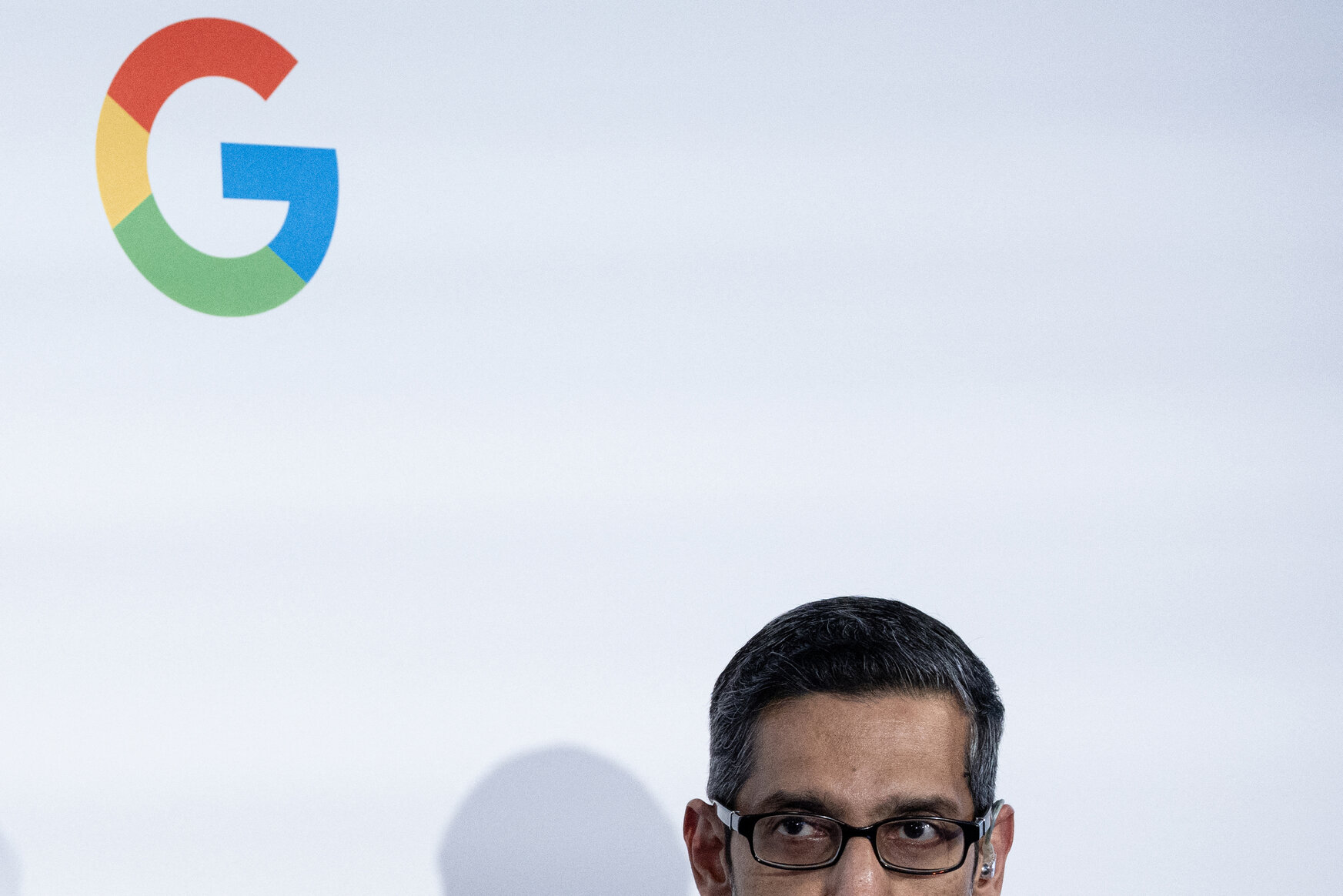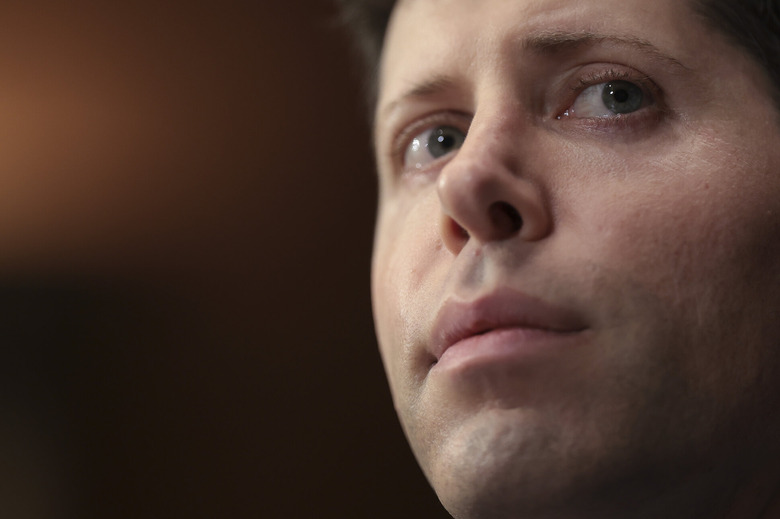Companies Like Google And OpenAI Are Pillaging The Internet And Pretending It's Progress
The AI-powered search engine Perplexity has come a long way since it launched back in 2022, so much so that it's now reportedly close to a $3 billion valuation. The company, which is taking advantage of growing user dissatisfaction with Google Search, was founded, coincidentally, a few months before the launch of OpenAI's chatbot ChatGPT — another Google rival, the launch of which reportedly sent Google into an all-hands-on-deck crisis mode.
Around the time of his company's launch, Perplexity CEO Aravind Srinivas turned at one point to OpenAI CEO Sam Altman for advice. Both CEOs are keenly focused on positioning their companies at the vanguard of the AI boom, so a conversation certainly made sense. Srinivas wanted Altman's insights, specifically, into how he could go about identifying his core strengths — the things he's good at. And Altman, it turns out, had a straightforward piece of wisdom for him:
'Look for the things that come easy to you, but that are hard to other people.'
That might sound like generic fodder worthy of a fortune cookie — but, in hindsight, it was a critical bit of guidance that both men have taken to heart. Because two years on from the launch of both Perplexity and ChatGPT, it appears that the thing these two AI leaders have decided they're good at is ... repurposing the fruit of other people's labor.
And it's not just them, either. Google, which used to be the kind of inspiring company that tackled moonshots like eliminating death, has switched gears, such that AI-written overviews are increasingly taking over Google Search results — a radical shift for the company, and part of an AI gold rush that's enabling the most brazen theft of intellectual property in the history of mankind.
I know that sounds overly dramatic, but here's an example of what I'm talking about. Head over to Perplexity, and do a search for "short Netflix series" — specifically, for the kind of shows you'd want to watch if you don't have a lot of time and can only binge a series, say, on the weekend. My problem is that several of the resulting show blurbs that Perplexity gives you are barely, and I mean barely, rewritten versions from a piece about short Netflix series that I wrote here.
And when you think about it, that shouldn't really come as a surprise. Perplexity's AI isn't alive or conscious, with thoughts of its own. It didn't watch a bunch of Netflix shows and offer up its own original thoughts, whereas I, in fact, did. What's more, thanks to Perplexity's new Pages feature, this rewritten Netflix ranking can now be turned into an actual page that's findable via Google Search.

Which is to say: You can now just rewrite something I do, and your Frankenstein creation can then go on to compete with my original content on Google. And then other people can do the same with your rewrite, in a sort of infinity loop of almost-plagiarism. Good times.
If I sound bitter, it's because I like many of you assumed the future would be amazing. I assumed that the arrow of progress pointed in an exciting and audacious direction, and that the passage of time would be marked not only by huge leaps forward for mankind, but also amazing technological breakthroughs — and that we'd put our knowledge to work and solve some of the most vexatious challenges that have befallen humanity.
We imagined cures for diseases and flying cars. What we got, instead, was tech CEOs desperate for the Next Big Thing to keep Wall Street happy — and, as a result, gaslighting us all about the snake oil of generative AI.
I don't know about you, but it's hard for me to get excited about a chatbot that can write a poem about a toaster or help you create a spreadsheet, especially when that chatbot was trained on other people's content without permission. In fact, I'm increasingly convinced that generative AI tools will play less of a role in our lives going forward, keeping in mind that such tools don't possess consciousness and aren't able to learn or create anything. Ignore the AI hype cycle, in other words, from the same tech industry that at one time thought wearables were going to take over the world.
This too shall pass.
As much as leaders like OpenAI's Altman — a non-technical CEO whose own (former) board members have portrayed as a liar — keep pounding the drum, it doesn't change the fact that ordinary people are, first and foremost, increasingly tired of the tech industry. They're tired of apps like Facebook and Uber stuffed to the gills with ads and other features no one asked for. Normies are also increasingly waking up to how terrible Google Search has gotten, especially with the disastrous AI Overviews now taking over.
When did it become in vogue for things to stop being, you know, actually useful?
No one but CEOs, management consultant types, and Wall Street investors is actually excited about AI, which should tell you all you need to know. I haven't touched Siri basically since the day it was released, and that's the same for almost everyone I know. It takes all of two seconds for me to go into an app like the Clock and set an alarm on my iPhone; yet Apple is going to announce a huge upgrade to Siri, backed by ChatGPT. Whatever.
Christopher Mims, writing in The Wall Street Journal days ago, argued that the rate of improvement for AI has begun to slow. He also wrote that "there appear to be fewer applications than originally imagined for even the most capable of them. It is wildly expensive to build and run AI. New, competing models are popping up constantly, but it takes a long time for them to have a meaningful impact on how most people actually work."
Breathless industry hype notwithstanding, consumers aren't on a constant lookout for the Next Big Thing. What they want is technology that makes their lives better — and not the handiwork of some scandal-plagued, non-technical CEO or a management consultant type who lives in a fantasy world and thinks consumers need to be force-fed an AI that steals from anyone and everyone while still making basic mistakes. Tech's era of hypergrowth is clearly over. Generative AI is simply a means to an end, allowing the fantasies and delusions to endure.
